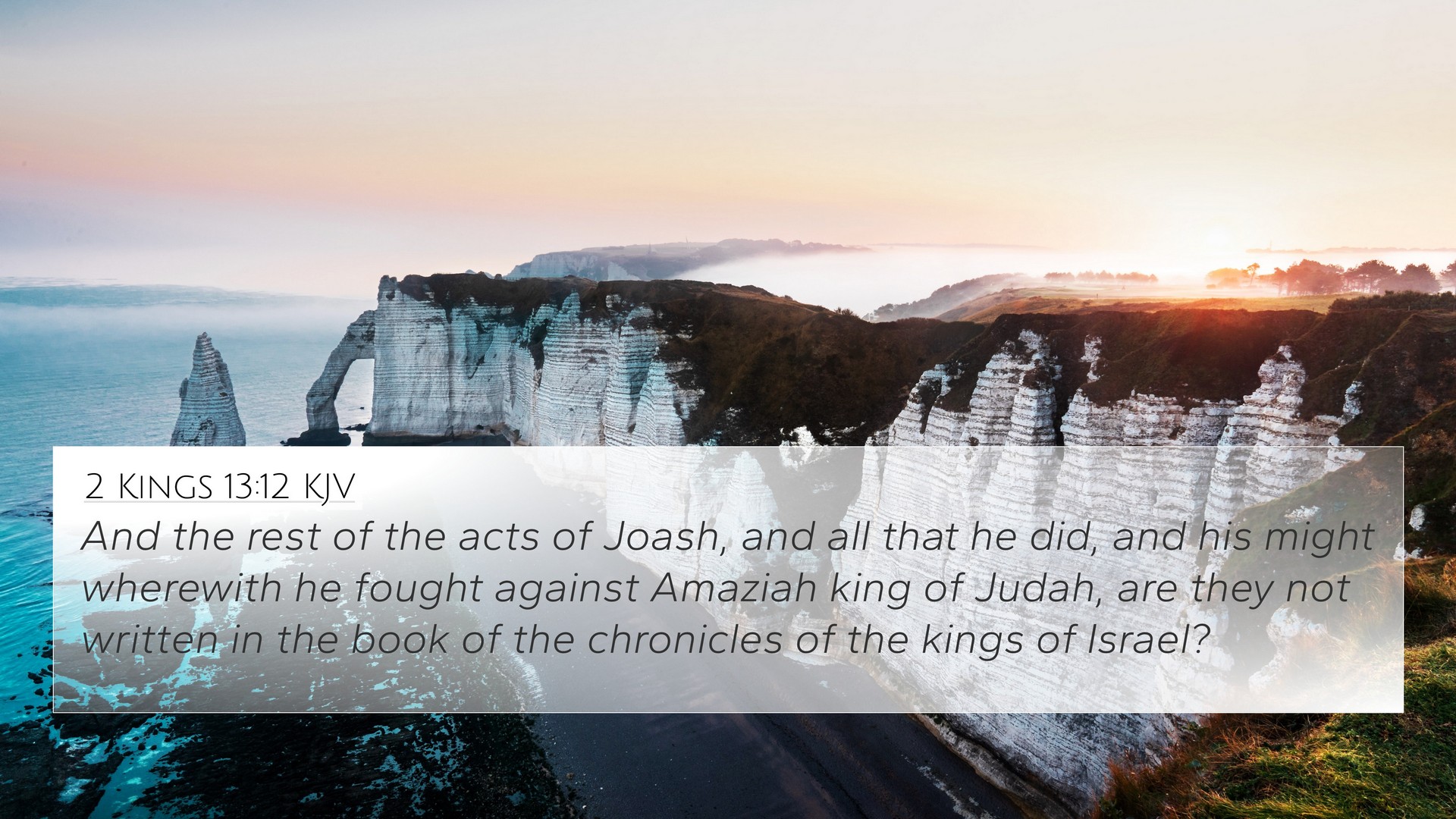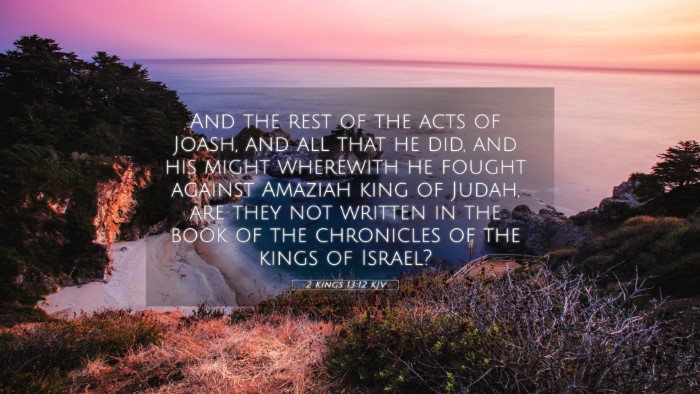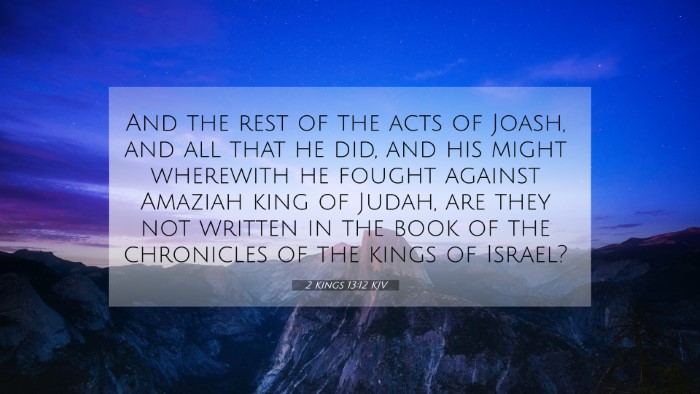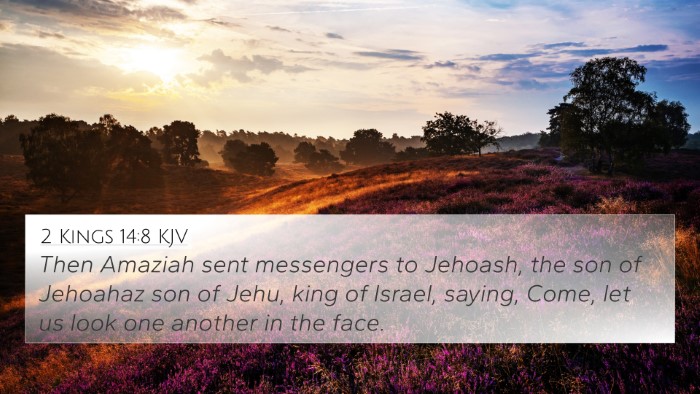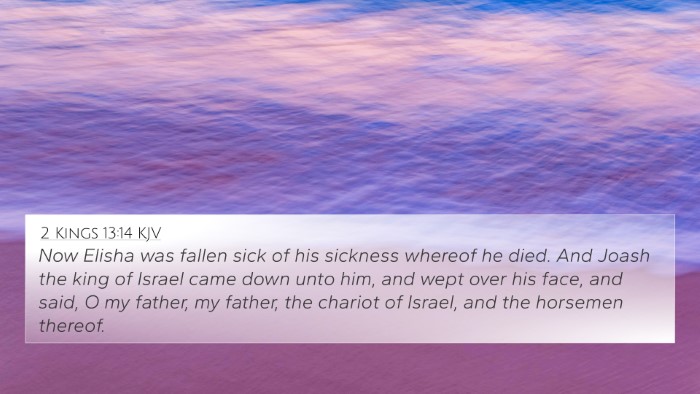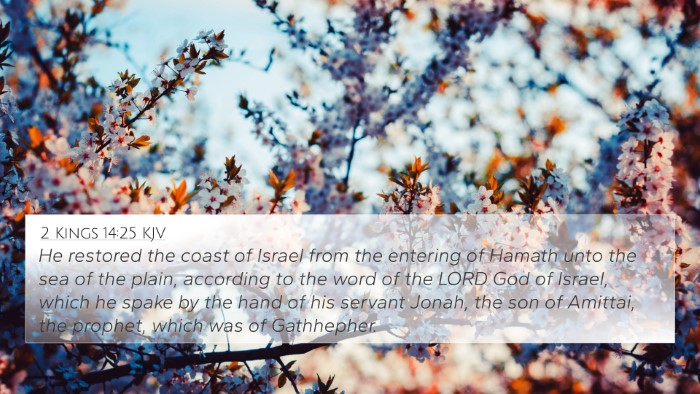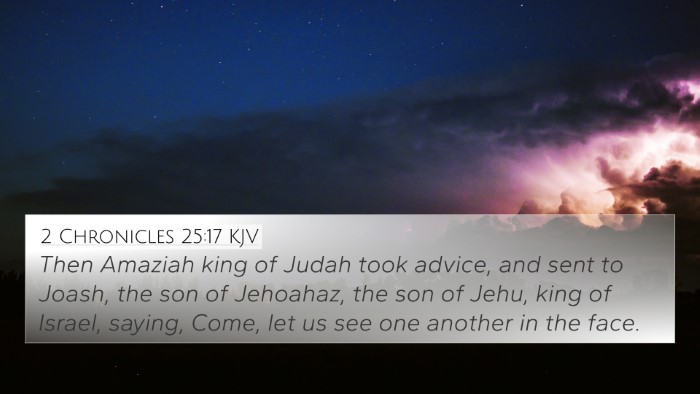Understanding 2 Kings 13:12 - A Combined Commentary
This commentary seeks to provide a comprehensive understanding of 2 Kings 13:12 by synthesizing insights from esteemed public domain commentaries by Matthew Henry, Albert Barnes, and Adam Clarke. This verse, rich in historical and theological significance, offers a myriad of connections and parallels with other scriptures that enrich its meaning.
Verse Context
2 Kings 13:12 states, "And Jehoash the son of Jehoahaz took again out of the hand of Benhadad the son of Hazael the cities which he had taken out of the hand of Jehoahaz his father by war. Three times did Joash beat him, and recovered the cities of Israel."
Summary of Insights
The insights from the commentaries highlight several themes within this verse:
- Historical Context: The narrative describes a significant military success of King Jehoash (Joash) over Benhadad of Damascus, showcasing God’s favor on Israel during Jehoash's reign. It emphasizes the cyclical nature of Israel's periods of oppression and deliverance.
- Theological Significance: Jehoash's victories reflect God's promise to preserve His people, often fulfilled even in less than ideal circumstances. This raises questions about divine providence and the nature of His interventions on behalf of Israel.
- Moral Lessons: Using Jehoash as an example, it serves as a reminder of how God can empower leaders to reclaim lost ground, both spiritually and physically.
- Comparative Analysis: Jehoash's military exploits parallel God’s faithfulness throughout Israel's history, reinforcing the idea that physical victories often symbolize spiritual triumphs.
Connections to Other Scriptures
To further understand 2 Kings 13:12, we can examine the following Bible cross-references that illuminate its concepts:
- 2 Kings 12:17-18: Discusses the relationship between the kings of Israel and their conflicts with surrounding nations.
- 2 Chronicles 24:23-24: Provides additional context on Israel's military conflicts and divine protection.
- Psalm 60:10: Reflects on divine assistance in battles, resonating with God's support for Jehoash.
- Isaiah 8:7-8: Speaks to the overarching theme of nations and God's sovereignty over them.
- Amos 9:14: Discusses God's promise of restoration for Israel, connecting with Jehoash's reclaiming of cities.
- Micah 4:10: Alludes to Israel's future deliverance, similar to the present rescue in 2 Kings 13:12.
- Matthew 1:12: Shows the lineage of Jesus through the kings of Israel, linking the Old Testament narrative to the New Testament fulfillment.
Cross-Referencing Biblical Texts
In studying 2 Kings 13:12, cross-referencing is essential for a deeper application and understanding:
- Comparative Bible verse analysis: Consider Isaiah 37:36 where God's intervention leads to a great victory.
- Thematic Bible verse connections: Reflect on 1 Samuel 17:47, where divine support leads to victory over giants.
- Inter-Biblical dialogue: Examine Luke 18:7-8, where Jesus refers to God's responsiveness to His people’s cries for help.
To enhance our Bible study, utilizing tools for Bible cross-referencing, like a Bible concordance or a cross-reference guide, can improve our understanding of how these verses interact and reinforce each other.
Conclusion
Through this analysis and these connections, we can glean a rich understanding of 2 Kings 13:12. It serves not only as historical documentation of Israel's military affairs but also as a theological affirmation of God’s ongoing covenant relationship with His people. By exploring clarifying connections and engaging in comparative studies, we can appreciate the intricate tapestry of scripture where every verse resonates with divine truth and purpose.
